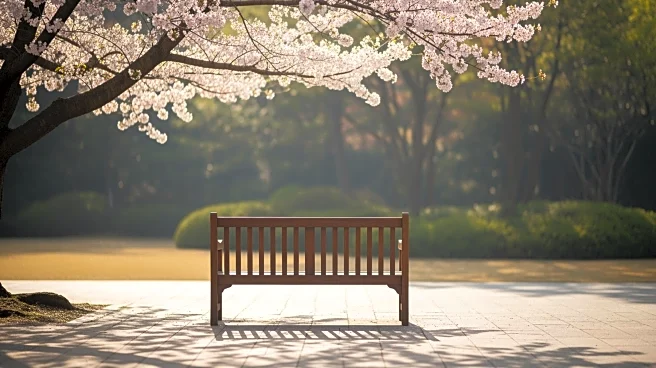What's Happening?
North Korea has reportedly opened new senior centers in response to its growing elderly population. The centers, including a recently opened facility in Pyongyang's Hwasong District, offer services such as therapeutic exercise, spa treatments, and sports
facilities. This development comes as North Korea faces a demographic challenge with an aging population and a declining birth rate. The country has not conducted a census since 2008, making it difficult to obtain accurate demographic data. However, estimates suggest that about 12% of North Koreans are aged 65 or older. The United Nations defines a society as 'aged' when this figure reaches 14%. The centers are seen as part of a state initiative to promote social cohesion and improve the country's international image.
Why It's Important?
The establishment of senior centers in North Korea highlights the country's demographic challenges, which are exacerbated by economic sanctions and limited industrial capacity. With a significant portion of the population living below the poverty line, the government faces difficulties in providing adequate social safety nets. The aging population, coupled with a low fertility rate, poses a threat to North Korea's long-term economic stability and workforce sustainability. The government's efforts to address these issues through senior centers may be seen as an attempt to mitigate social unrest and maintain regime stability. However, the concentration of these facilities in Pyongyang suggests a disparity in resource allocation, potentially leading to further inequality between urban and rural areas.
What's Next?
North Korea's top officials are expected to convene for the Ninth People's Congress early next year, where they will outline the country's economic agenda for the next five years. It remains uncertain whether new measures to support the elderly will be introduced during these meetings. The government's focus on demographic issues may lead to policy changes aimed at increasing the birth rate and improving living conditions for the elderly. However, the effectiveness of these measures will depend on the country's ability to navigate international sanctions and economic constraints.
Beyond the Headlines
The demographic challenges faced by North Korea have broader implications for the region. As the country grapples with an aging population and declining birth rates, its economic and social policies may influence neighboring countries, particularly South Korea, which is also dealing with similar issues. Additionally, North Korea's approach to managing its demographic crisis could impact its diplomatic relations, as international observers assess the regime's commitment to improving the welfare of its citizens. The focus on senior centers may also reflect a strategic move to project a more humane image to the international community.

















